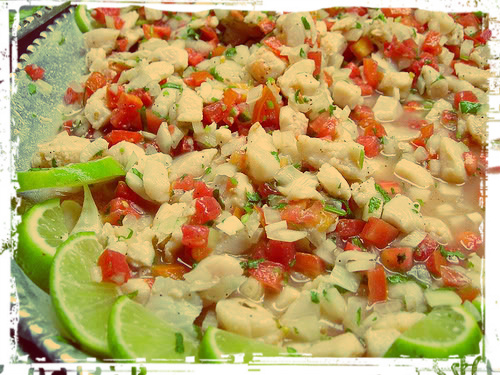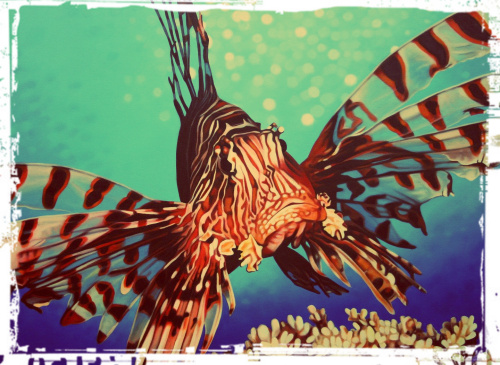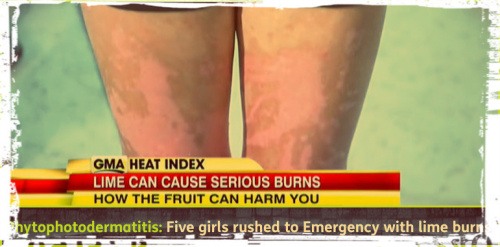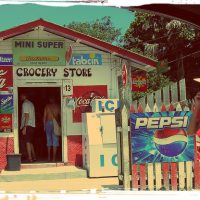THE BACKSTORY
Here in the Caribbean, the waters around our rocks are being invaded (and no, I am not referring to tourists on cruise ships). An infestation of lionfish has taken over and is currently destroying our beautiful reefs. Lionfish belong in the Pacific Ocean, but due to an accident that released many of them into the Caribbean Sea about a decade ago, they have now spread throughout the region at a terrifying pace. They procreate often and quickly; they eat juvenile fish; and they have no natural predators here. All of these factors combine to create a scary situation for the sustainability of our ecosystem.
Therefore, as a Caribbean resident, I would like to officially invite each and every one of you to kill and eat as many lionfish as you possibly can while visiting our rocks! On Roatan, the local marine park even allows licensed divers and snorkelers to spearfish them. So of course, we like to take advantage of that opportunity and catch our own free food as often as we can.
First off, can we all agree on a few things before we proceed: 1) fish are tasty; 2) lionfish are destructive; and 3) ceviche is an incredibly underrated fish dish. So, basically, simple math would prove that lionfish ceviche is a phenomenal choice. I can attest to this. On top of ceviche’s vibrant flavors, it is also so much fun to share; plus, it’s unbelievably easy to make.
THE INCIDENT
The only downside to ceviche? Making it – as I have learned through personal experience – can burn you.
Not possible, you say? Because ceviche isn’t cooked? How could you possibly burn yourself with raw fish, you ask?
The Answer: Making ceviche on the beach involves a combination of lime juice and sunshine. And, as I have discovered firsthand, citric acid plus UV rays equal second – or even third – degree burns.
So, imagine you’re out on the beach with friends after a beautiful SCUBA dive during which more than 20 invasive lionfish have been speared. They’re all in a bucket waiting to be filleted and diced to toss into yet another bucket, which is currently being filled with lime juice by yours truly. You cut the limes in half, give them several big squeezes, and watch the juice add up inside the bucket (and all over your hands). Rinse your hands in the ocean, let that lionfish “cook” in the tart flavors, eat, and enjoy!
Except here’s the catch… within about 24 hours, watch in horror as your hands begin to blister and turn a deep reddish-purple, the likes of which both frighten and sicken you. At first, you’ll try and comfort yourself that it’s just a bad sunburn from holding too many beer cans while wading in the water (just a few, Mom, I promise). This seems like a solid theory! But then the burn continues to worsen, and then the blisters appear. Definitely not a typical sunburn, your false consolations are no more.
THE SCIENCE
After some quick research, we discovered that I had Phytophotodermatitis. Long word, allow me to break it down for you: phyto (plant-based), photo (light-based), dermatitis (skin disease). Apparently, citric acid combined with UV rays will essentially result in a chemical burn. In this particular case, the burn was all over my hands (and everywhere else that damn lime juice sprayed when I squeezed it). Turns out not only citrus fruits, but a variety of other plants combined with UV rays can cause these rash-burns, including – take note! -parsley, celery, carrot, and fig. Other names for it include Lime Disease (not to be confused with the tick-borne Lyme Disease) and Margarita Rash. Who knew?!
THE BRIGHT SIDE
Fear not, dear readers – burns do heal. But I will say that they are less than ideal when you live in a sun-soaked tropical paradise where every time you step outside, you feel the searing pain come aflame again, feeling as though steam is about arise from your flesh at any moment.
Every story must have a happy ending though, right? At least that’s what rom-coms always taught me. So here’s the happy ending: Vitamin E. Vitamin E effectively eliminates scarring, and when applied repeatedly to my marred and ugly hands, the redness disappeared, the brown discoloration bleached away, and my good old normal skin shined through yet again.
LESSON(S) LEARNED
Alas, I have definitely learned my lesson: no more making ceviche on the beach. I’ll leave it to the culinary experts at my favorite seafood restaurants whose hands are hidden away in their kitchens, and thus safe from those vicious UV rays.
Oh! And another fun lesson I learned: I adjust my bikini far too often. I also had burn marks along the edges of where both my top and bottom swimsuit pieces lay, places where my citrus-covered hands clearly couldn’t stop fidgeting to ensure I was fully covered. From now on, I think I’ll just lie in the sand with a cold drink in hand and relax, sans second-degree burns.
Now don’t say I didn’t warn you – protect yourself, my friends. Ceviche burns!

















13 Comments